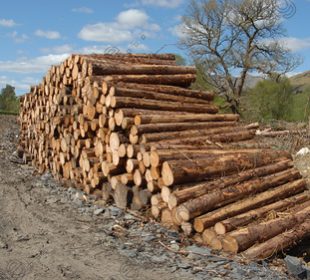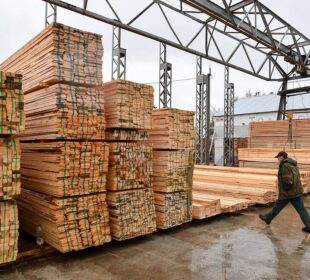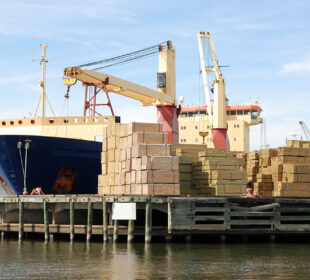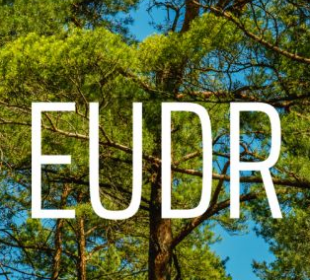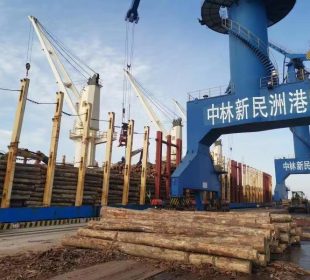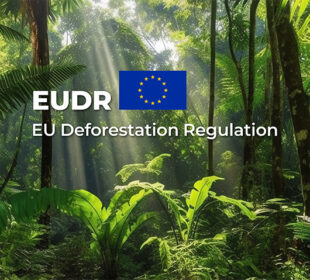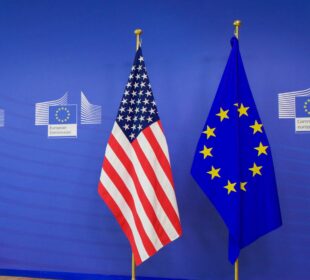Feedback received by the EC on their “fitness check” of the FLEGT and EUTR regulations indicates a high degree of consensus amongst European organisations and interests on the broad aims and objectives of the policy and legislative instruments.
It also indicates a desire to extend implementation and improve enforcement of the regulations in various ways.
However, the relationship between the regulations and private sector forest certification initiatives was a point of difference between European organisations.
These are conclusions of a brief review of responses to a public consultation undertaken by the European Commission (EC) in February and March this year (the review and analysis of responses were undertaken by MIS and are not intended to reflect any official position or opinion of the EU or its member states).
Although relatively small in number and almost exclusively from European interests, the 39 responses received captured a wide range of regionally significant forestry, industry and trade associations, alongside some larger companies, and non-governmental organisations.
According to the EC, the “fitness check” examines the “effectiveness, efficiency, coherence, relevance and EU added value of both regulations in contributing to the fight against illegal logging globally”. The EC is evaluating whether the instruments are fit for purpose or need to be revised.
The “fitness check” also addresses the coherence between the regulations and, according to the EC will “provide a very valuable input for the assessment of potential additional demand side measures.”
Most organisations responding to the fitness check agreed that the FLEGT regulation and EUTR are “fit for purpose” in the sense of delivering positive gains against their stated objectives of reducing trade in illegally harvested wood and contributing to improved forest sector regulation.
From the trade side, the European Timber Trade Federation (ETTF), representing timber trade associations in 15 European countries, stated that they “fully support the FLEGT process and ask the EU to speed up the process”. FederlegnoArredo, the Italian Federation of Wood, Cork, Furniture and Furnishing Manufacturers, said “we think that FLEGT and EUTR are key policies on improving governance of developing and emerging market countries”.
For the European woodworking industry, CEI Bois stated that, for EUTR, the “EU added value of this instrument is undeniable” and “the industry fully supports the FLEGT system and recommends the EU to speed up the process with producing countries in order to increase the volumes of FLEGT-licensed wood available for the European market”.
Similarly, the European Furniture Industries Confederation (EFIC) noted that it “sees the benefits of a wider application of the EUTR”. The Finnish Forest Industry Federation (FFIF) called the EUTR “an important tool to prevent illegally harvested timber products to be placed on the EU market” and called for the scope to be extended. The European Panel Federation (EPF), on behalf of European manufacturers of wood-based panels, said that it “embraces EUTR”.
The European Landowners Organisation, which represents the hundreds of thousands of landowners, managers and farmers across Europe, stated simply that they “consider that the EUTR is ‘fit for purpose’ and continues to be the main tool to minimize the risks of unfair competition in market”. Furthermore that “the principle of due diligence must remain central and the implementation of the EUTR should be improved, particularly in areas deemed riskier”.
Environmental groups also remained broadly supportive of the FLEGT process. FERN said that it believes the VPAs have “prompted forest-related legal and policy reforms in all partner countries. This has improved governance, increased sustainable forest management, and reduced deforestation”.
The Environmental Investigation Agency (EIA) said that the EUTR and FLEGT Regulation “provide a framework that is fit for purpose and contributes to the international fight against illegal logging and its related trade.”
ClientEarth “considers that both the EUTR & FLEGT Regulation have contributed to more legality and transparency in the global timber supply chain and have made progress towards achieving the objectives of the FLEGT Action Plan”.
Earthsight noted that the EUTR is “a pioneering piece of legislation and remains a vital tool in the global fight against illegal deforestation and the associated trade in commodities”.



